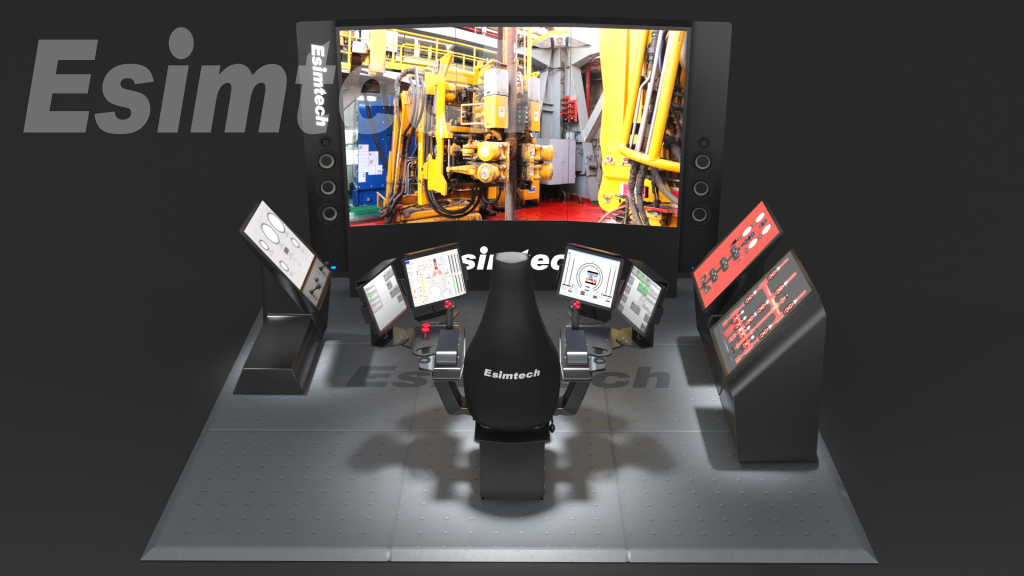4 Tips to Know Drilling and Well Control Simulators Quickly
Drilling and well control operations play a crucial role in the oil and gas industry, demanding skilled professionals and specialized equipment to ensure safety, efficiency, and productivity. As these activities grow increasingly complex, the importance of effective training and education cannot be overstated. In response to this need, drilling and well control simulators have emerged as powerful tools in the industry. This article explores the key features, benefits, challenges, and future prospects of these simulators, highlighting their role in improving safety and minimizing environmental risks.

Understanding Drilling and Well Control Simulators
Drilling and well control simulators are computer-based systems that recreate real-world drilling and well control operations within a simulated environment. They offer a realistic and interactive training experience, enabling operators to practice and refine their skills and knowledge in a safe and controlled setting. Simulators come in various types, including drilling simulators, well control simulators, and combined drilling and well control simulators.
How Do Drilling and Well Control Simulators Work?
Drilling and well control simulators consist of software and hardware components. The simulation software employs mathematical models to replicate the physical and mechanical aspects of drilling and well control operations. On the other hand, the hardware components comprise control panels, joysticks, and other equipment that facilitate user interaction with the simulator. Operators can input different parameters and scenarios, receiving output data and analysis in return.
Benefits of Using Drilling and Well Control Simulators for Training and Education
Drilling and well control simulators offer numerous advantages for training and education, including:
Safety and Risk Reduction: Simulators provide a safe environment for operators to develop their skills and knowledge without the inherent risks of real-world operations.
Cost-effectiveness and Efficiency: Simulators offer a cost-effective and efficient training method, eliminating the need for expensive equipment and resources required in real-world scenarios.
Realistic and Interactive Training Experience: Simulators provide an immersive training experience that closely replicates real-world operations, enabling operators to enhance their skills and knowledge effectively. Customizable and Scalable Training Programs: Simulators allow for tailored and scalable training programs that can be adapted to meet the specific needs of operators, operations, and organizations.
Differences Between Simulators and Real-World Operations
While drilling and well control simulators provide significant benefits, it's essential to recognize the disparities between simulators and real-world operations. Simulators have inherent limitations and challenges that can impact their accuracy and realism. To ensure operators are fully prepared for actual operations, real-world experience should complement simulator training.

Challenges and Limitations of Drilling and Well Control Simulators
The accuracy and complexity of simulation models, accessibility of simulators, and the associated costs and maintenance are some of the challenges and limitations facing drilling and well control simulators. Addressing these challenges is crucial to ensure simulators remain effective and efficient as training and education tools.
Future Developments and Innovations
The future and innovations of drilling and well control simulators hold promising advancements. Anticipated developments include improvements in simulation technology, integration with artificial intelligence and machine learning, and expanded use of virtual reality and immersive training techniques. These innovations will enhance the accuracy and realism of simulators, delivering an even more engaging and lifelike training experience for operators.
In summary, drilling and well control simulators have revolutionized training and education in the oil and gas industry. Their realistic and interactive nature, coupled with their potential for customization and scalability, makes them invaluable tools for ensuring safety, efficiency, and expertise in drilling and well control operations. With ongoing advancements and innovation, simulators will continue to play a crucial role in preparing operators for the challenges of the industry while reducing risks and environmental impact.
- Art
- Causes
- Crafts
- Dance
- Drinks
- Film
- Fitness
- Food
- Jogos
- Gardening
- Health
- Início
- Literature
- Music
- Networking
- Outro
- Party
- Religion
- Shopping
- Sports
- Theater
- Wellness


